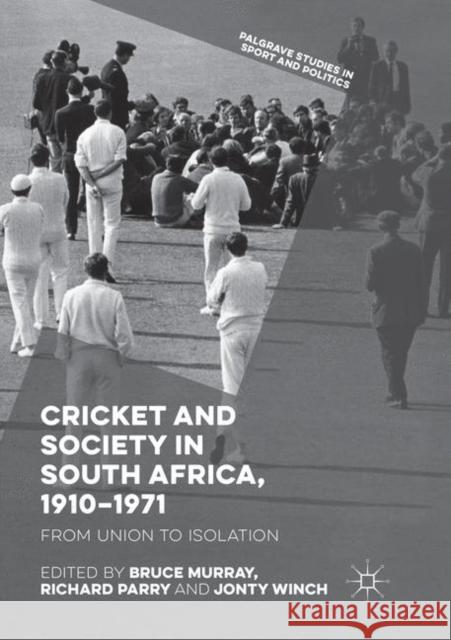Cricket and Society in South Africa, 1910-1971: From Union to Isolation » książka
topmenu
Cricket and Society in South Africa, 1910-1971: From Union to Isolation
ISBN-13: 9783030066925 / Angielski / Miękka / 2018 / 383 str.
Cricket and Society in South Africa, 1910-1971: From Union to Isolation
ISBN-13: 9783030066925 / Angielski / Miękka / 2018 / 383 str.
cena 327,68 zł
(netto: 312,08 VAT: 5%)
Najniższa cena z 30 dni: 325,42 zł
(netto: 312,08 VAT: 5%)
Najniższa cena z 30 dni: 325,42 zł
Termin realizacji zamówienia:
ok. 20 dni roboczych.
ok. 20 dni roboczych.
Darmowa dostawa!
Kategorie BISAC:
Wydawca:
Palgrave MacMillan
Seria wydawnicza:
Język:
Angielski
ISBN-13:
9783030066925
Rok wydania:
2018
Dostępne języki:
Numer serii:
000796604
Ilość stron:
383
Oprawa:
Miękka











